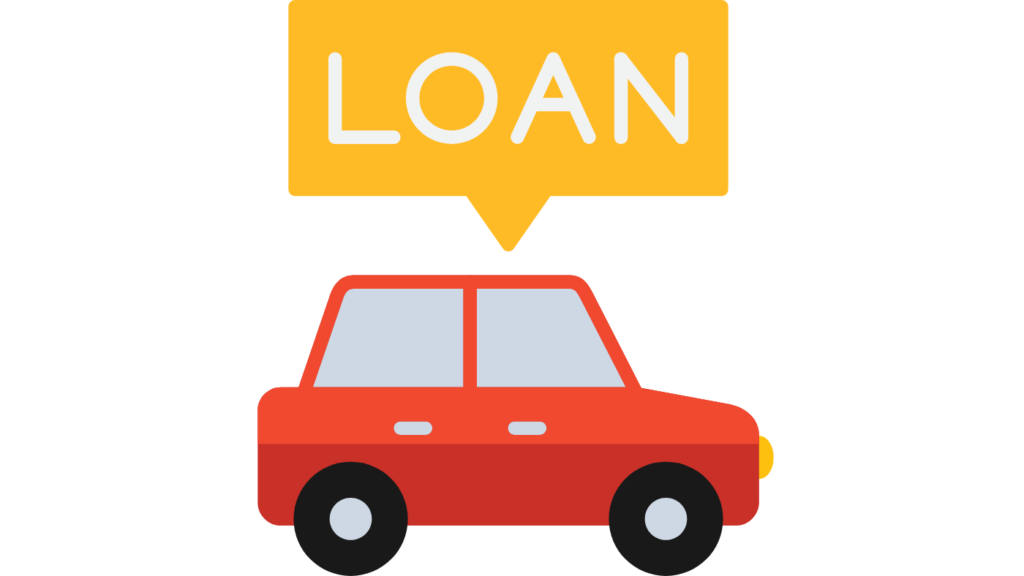Securing a car loan can be a significant hurdle for many Canadians, particularly those with limited credit history or lower credit scores. One effective strategy to overcome this challenge is to involve a cosigner, who shares the responsibility of the loan and enhances the likelihood of approval. This comprehensive guide explores how to get a car loan with a cosigner in Canada, offering detailed insights into the process, requirements, benefits, and potential risks. Whether you’re a first-time car buyer, a newcomer to Canada, or someone rebuilding credit, understanding the role of a cosigner is essential for navigating the auto financing landscape successfully.
By leveraging a cosigner, borrowers can access better loan terms and increase their chances of driving away in their desired vehicle. This article draws on authoritative resources, such as the Financial Consumer Agency of Canada (FCAC), to provide accurate and actionable advice. For those seeking tailored financing solutions, Quick Approvals offers valuable resources to streamline the application process. Let’s dive into the key aspects of obtaining a car loan with a cosigner in Canada.
What is a Cosigner for a Car Loan in Canada?
A cosigner is an individual who signs a car loan agreement alongside the primary borrower, agreeing to repay the loan if the borrower fails to make payments. Unlike a co-borrower, who shares ownership of the vehicle, a cosigner typically has no legal claim to the car but assumes equal financial responsibility. This arrangement reassures lenders, making it easier for borrowers with poor or limited credit to secure financing.
The cosigner’s role is particularly significant in Canada, where lenders often require strong credit profiles for loan approval. By adding a cosigner with a good credit score, the borrower can overcome barriers such as a low credit score or insufficient credit history. However, cosigning is a serious commitment, as missed payments can negatively impact the cosigner’s credit and financial standing. For a deeper understanding of cosigning, refer to CIBC’s guide on co-signing loans.
Key Responsibilities of a Cosigner
- Loan Repayment: If the borrower defaults, the cosigner must cover the loan payments, including any late fees or collection costs.
- Credit Impact: Timely payments can benefit both parties’ credit scores, but missed payments harm both.
- Legal Obligation: The cosigner is legally bound to the loan terms for the entire duration, unless removed through refinancing or lender approval.
What Are the Requirements for a Car Loan with a Cosigner in Canada?

Lenders in Canada impose specific requirements for both the borrower and the cosigner to ensure the loan is manageable and low-risk. While criteria vary by lender, the following are common expectations:
Borrower Requirements
- Age: Must be at least 19, the age of majority in most Canadian provinces.
- Residency: Must be a Canadian citizen or permanent resident.
- Income: Provide proof of stable income, such as pay stubs or tax returns, to demonstrate repayment ability.
- Identification: A valid driver’s license or government-issued ID is typically required.
- Vehicle Details: Information about the vehicle, such as the Vehicle Identification Number (VIN) or purchase agreement.
Cosigner Requirements
- Credit Score: A good to excellent credit score, generally above 650, to reassure the lender.
- Income Stability: Proof of sufficient income to cover loan payments if the borrower defaults.
- Credit Check: Willingness to undergo a credit check, as the cosigner’s credit history is a key factor.
- Relationship: Many lenders prefer cosigners who are family members or close relatives, though this is not always mandatory.
Additional Considerations
Some lenders may require the cosigner to reside in the same province as the borrower or have a minimum income threshold. It’s advisable to contact lenders directly to confirm their specific policies. For example, major banks like TD Canada Trust and RBC Royal Bank often outline their requirements through their auto financing programs.
| Party | Key Requirements | Examples of Documentation |
|---|---|---|
| Borrower | Age 19+, Canadian resident, stable income | Driver’s license, pay stubs, purchase agreement |
| Cosigner | Good credit (650+), stable income, credit check | Government ID, tax returns, bank statements |
What is the Process for a Car Loan with a Cosigner in Canada?

The application process for a car loan with a cosigner involves several steps, requiring coordination between the borrower, cosigner, and lender. Below is a detailed outline of the process:
- Identify a Cosigner: Find a trusted individual with strong credit and financial stability willing to cosign. Discuss the responsibilities and risks openly.
- Research Lenders: Explore banks, credit unions, and online lenders that offer car loans with cosigners. Compare interest rates, terms, and fees.
- Gather Documentation: Collect necessary documents for both parties, including identification, proof of income, and vehicle details.
- Complete the Application: Submit a joint application, providing accurate information for both the borrower and cosigner.
- Await Approval: The lender reviews the application, assessing both parties’ credit and financial profiles.
- Review Loan Terms: If approved, carefully examine the interest rate, repayment schedule, and any additional fees.
- Sign the Agreement: Both the borrower and cosigner sign the loan contract, formalizing the agreement.
- Purchase the Vehicle: Use the loan funds to buy the car, ensuring all paperwork is completed.
For assistance with this process, Quick Approvals provides tools and guidance to simplify your application.
How Does a Cosigner Help in Getting a Car Loan in Canada?
A cosigner plays a pivotal role in enhancing a borrower’s loan application by reducing the lender’s risk. Here’s how a cosigner can make a difference:
- Improved Approval Odds: A cosigner with a strong credit profile compensates for the borrower’s weak credit, increasing the likelihood of approval.
- Lower Interest Rates: Lenders may offer more competitive rates due to the reduced risk, saving money over the loan term.
- Access to Larger Loans: With a cosigner, borrowers may qualify for higher loan amounts, enabling the purchase of a more expensive vehicle.
- Credit Building: Timely loan payments can help the borrower improve their credit score, fostering long-term financial health.
However, the cosigner must be prepared for the financial and credit implications if the borrower fails to meet their obligations. Open communication between both parties is essential to maintain trust and avoid disputes.
Choosing the Right Cosigner for Your Car Loan

Selecting an appropriate cosigner is critical to a successful loan experience. Consider the following factors when choosing a cosigner:
- Credit History: Opt for someone with a credit score above 650, as this significantly influences loan terms.
- Financial Stability: Ensure the cosigner has a steady income and can afford potential loan payments.
- Trust and Communication: Choose a person with whom you have a strong, transparent relationship to discuss financial matters openly.
- Willingness to Commit: The cosigner must fully understand and accept the responsibilities, including the risk to their credit.
- Proximity and Relationship: Some lenders prefer cosigners who are family members or live in the same province, though this varies.
Taking time to select the right cosigner can prevent future complications and strengthen the loan application.
Best Banks for Car Loans with Cosigner in Canada
Several Canadian financial institutions offer car loans that accommodate cosigners, providing flexible terms and competitive rates. Below is a list of reputable lenders:
| Bank | Key Features | Website |
|---|---|---|
| RBC Royal Bank | Competitive rates, flexible terms up to 8 years | RBC Car Loans |
| TD Canada Trust | Nationwide dealership network, no down payment options | TD Auto Finance |
| Scotiabank | Tailored auto loan programs, cosigner-friendly | Scotiabank Auto Loans |
| CIBC | Comprehensive loan options, cosigner guidance | CIBC Loans |
| BMO Bank of Montreal | Flexible financing, cosigner support | BMO Auto Loans |
When selecting a lender, compare interest rates, repayment terms, and eligibility criteria. Visiting Quick Approvals can help you connect with lenders suited to your needs.
Car Loan Interest Rates with Cosigner in Canada
Interest rates for car loans in Canada typically range from 4% to 10%, influenced by factors such as the borrower’s and cosigner’s credit scores, loan amount, and term length. A cosigner with excellent credit can help secure rates at the lower end of this spectrum, reducing the overall cost of the loan.
For example, a borrower with a credit score below 600 might face rates of 8–10% without a cosigner. Adding a cosigner with a score above 700 could lower the rate to 4–6%, depending on the lender. Tools like the RBC Car Loan Calculator allow you to estimate payments based on different rates and terms.
Factors Affecting Interest Rates
- Credit Scores: Higher scores lead to lower rates.
- Loan Term: Shorter terms often have lower rates but higher monthly payments.
- Vehicle Type: New cars may qualify for lower rates than used ones.
- Market Conditions: Rates fluctuate based on economic factors like the Bank of Canada’s prime rate.
Can I Get a Car Loan with Bad Credit and a Cosigner in Canada?
For individuals with bad credit (credit scores below 600), a cosigner can be a game-changer. Lenders view the cosigner’s strong credit as a safety net, making them more willing to approve the loan. This is particularly beneficial for young adults, newcomers, or those recovering from financial setbacks.
Strategies for Success
- Shop Around: Different lenders have varying criteria; some specialize in bad-credit loans.
- Larger Down Payment: Reducing the loan amount can improve approval chances.
- Provide Extra Documentation: Proof of stable employment or additional income sources can strengthen the application.
- Work on Credit Improvement: Use the loan to build credit through timely payments.
By leveraging a cosigner, borrowers with bad credit can access financing that might otherwise be out of reach, paving the way for vehicle ownership and credit recovery.
Steps to Apply for a Car Loan with a Cosigner in Canada

Applying for a car loan with a cosigner requires careful preparation and coordination. Follow these detailed steps to streamline the process:
- Discuss Responsibilities: Have an open conversation with your cosigner about the loan’s terms and risks.
- Review Credit Reports: Both parties should check their credit reports for errors using services like Equifax or TransUnion.
- Select a Lender: Research banks, credit unions, or online platforms that support cosigner loans.
- Collect Documents: Gather identification, proof of income, and vehicle details for both the borrower and cosigner.
- Submit the Application: Complete the joint application accurately, ensuring all required fields are filled.
- Await Lender Review: The lender evaluates both parties’ financial profiles, typically within a few days.
- Negotiate Terms: If approved, review and negotiate the interest rate, term, and fees.
- Sign the Contract: Both parties sign the agreement, finalizing the loan.
- Purchase the Vehicle: Use the funds to buy the car and complete all necessary paperwork.
For expert guidance, Quick Approvals offers resources to simplify this process and connect you with suitable lenders.
What Documents Are Needed for a Car Loan with a Cosigner in Canada?
Lenders require specific documentation to process a car loan application with a cosigner. Below is a comprehensive list of commonly requested documents:
Borrower Documents
- Identification: Government-issued ID, such as a driver’s license or passport.
- Proof of Income: Recent pay stubs, tax returns, or employment verification letters.
- Proof of Residence: Utility bills or lease agreements confirming your address.
- Vehicle Information: Purchase agreement, VIN, or dealer invoice for the car.
Cosigner Documents
- Identification: Valid government-issued ID.
- Proof of Income: Pay stubs, tax returns, or bank statements showing stable income.
- Credit Authorization: Consent for a credit check or a recent credit report.
- Proof of Residence: Documentation verifying the cosigner’s address.
Additional Notes
Some lenders may request bank statements or references. Always verify requirements with the lender to avoid delays. Preparing these documents in advance can expedite the application process.
Frequently Asked Questions
What is a Cosigner for a Car Loan in Canada?
A cosigner is an individual who co-signs a car loan, agreeing to repay it if the primary borrower defaults. They provide financial security to the lender, enhancing approval chances without owning the vehicle. Both parties’ credit scores are affected by the loan’s payment history.
Can I Get a Car Loan with Bad Credit and a Cosigner in Canada?
Yes, a cosigner with good credit significantly improves approval odds for borrowers with bad credit. Lenders view the cosigner as a guarantor, reducing risk. Providing a larger down payment or additional income proof can further strengthen the application.
What Are the Requirements for a Car Loan with a Cosigner in Canada?
Borrowers need to be 19 or older, Canadian residents, and provide proof of income and ID. Cosigners require a credit score above 650, stable income, and consent for a credit check. Specific requirements vary by lender, so confirm with your chosen institution.
How Does a Cosigner Help in Getting a Car Loan in Canada?
A cosigner boosts approval chances by offering their strong credit and income as security. This can lead to lower interest rates, larger loan amounts, and better terms, making financing more accessible for borrowers with weak credit profiles.
What Documents Are Needed for a Car Loan with a Cosigner in Canada?
Borrowers need ID, proof of income, residence, and vehicle details. Cosigners provide similar documents, including ID, income proof, and credit check authorization. Exact requirements depend on the lender, so verify in advance.
Can a Cosigner Be Removed from a Car Loan?
In some cases, cosigners can be removed after consistent on-time payments or through refinancing, but this depends on the lender’s policies. Discuss removal options with the lender at the outset to understand the process.
For additional FAQs and personalized support, explore Quick Approvals’ FAQ section.
Conclusion
Obtaining a car loan with a cosigner in Canada is a practical solution for those facing credit challenges, offering a pathway to vehicle ownership and credit improvement. By understanding how to get a car loan with a cosigner in Canada, including the requirements, application process, and potential risks, borrowers and cosigners can make informed decisions. Selecting a trusted cosigner and a reputable lender is crucial for a successful outcome.
For further guidance, the Financial Consumer Agency of Canada (FCAC) provides valuable resources on consumer rights and financial products. To explore financing options tailored to your needs, visit Quick Approvals and take the first step toward your new vehicle today.


